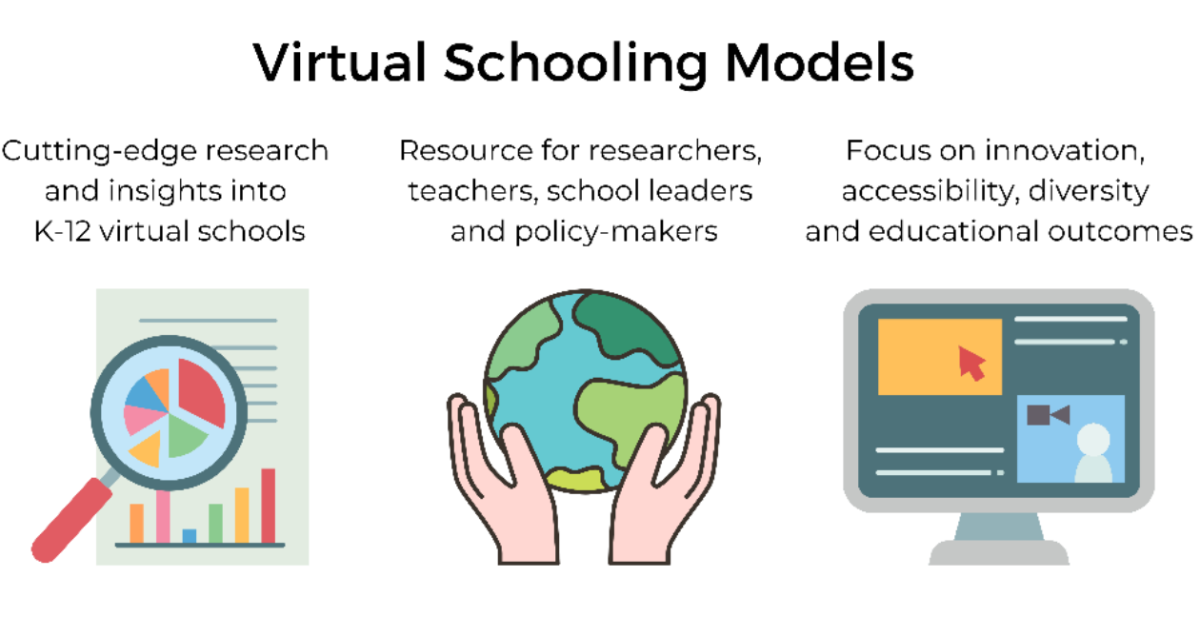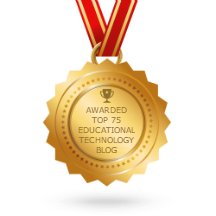While I don’t personally submit to any journal that charges an article fee, I know Paul well and encourage folks to get involved in any initiative that he is involved with.
Special Issue “Virtual Schools for K-12 Education: Lessons Learned and Implications for Digital K-12 and Other Sectors of Education”
A special issue of Education Sciences (ISSN 2227-7102).
Deadline for manuscript submissions: 1 April 2024 | Viewed by 75
Special Issue Editors
Prof. Dr. Paul Bacsich
Guest EditorMatic Media Ltd., Sheffield S17 3GA, UK
Interests: online education benchmarking; online education quality; online education policy; virtual schools; open educational resourcesProf. Dr. Sara de Freitas
Guest Editor
Digital Futures Institute, University of Suffolk, Ipswich IP4 1QJ, UK
Interests: serious games; immersive technologies; learning design and digital pedagogiesDr. Bieke G. M. Schreurs
Guest EditorResearch Institute of Child Development and Education (RICDE), Universiteit van Amsterdam, 1012 WX Amsterdam, The Netherlands
Interests: acceptance, design, implementation, scale-up and sustainability of technology enhanced learning solutions in education; digital literacy skillsSpecial Issue Information
Dear Colleagues,
Virtual schools have existed in many countries for at least the last 20 years and were early adopters of digital technology. However, apart from in the US, they have remained “below the radar”, largely ignored by mainstream researchers and policy makers. Nevertheless, their numbers have been steadily growing and, in the last few years, the subsector has begun attracting interest from investors.
The COVID-19 pandemic massively accelerated the shift towards virtual schooling in the K-12 sector, forcing it to be a key part of the K-12 education ecosystem either as a replacement (not just in emergency situations) for or complementary to place-based K-12.
As reliance on virtual schools expands, it is imperative to understand their pedagogic, technical and leadership challenges, solutions and relevance. This necessitates rigorous research and informed practitioner and leadership discussion.
Since virtual K-12 operates on a more minimal cost basis than universities, yet relies totally on digital technology, there are also lessons to be learned by place-based K-12, as digital delivery becomes pervasive, and by other sectors, including universities.
This Special Issue aims to consolidate cutting-edge research and insights into K-12 virtual schools and to critically analyze and improve virtual schooling models.
It will serve as a comprehensive resource for researchers, teachers, school leaders and international/national/regional policy makers.
The scope of this Special Issue encompasses the development, implementation, and evaluation of virtual schools, with a focus on innovation, accessibility, diversity and educational outcomes.
This Special Issue aims to provide significant coverage of countries including from the Global South and smaller countries (including Small Island States) and the authors may wish to collaborate on studies spanning several countries.
The following topic list is structured based mainly on the SELFIE and DigCompEdu schemes for the digital maturity of schools used in many countries, but with detailed items taken from literature searches and recent consultations with virtual schools.
External environment
- Role of national, regional and municipal governments in providing virtual schooling and finance for it;
- International policy aspects (e.g., UNESCO SDGs, EU policy issues, OECD reports, etc.);
- Ongoing effects of the COVID pandemic on virtual schools.
Leadership
- Business and organizational models of virtual schools, including virtual supplementary schools and interworking with place-based schools;
- Cost and time issues affecting virtual schools differently from place-based schools;
- Managing many part-time and adjunct distributed staff.
Infrastructure and equipment
- Future directions for learning management systems and related systems (e-exams, proctoring, portfolios, AI, etc.);
- Providing a uniform student experience for distributed students on a range of devices;
- Affordances of tablets and phones (rather than personal computers) in infrastructure provision;
- Scaling to handle unexpected demands (pandemics, natural disasters, etc.).
Professional development
- Teacher training and professional development for online K-12 education;
- Monitoring and improving staff digital competence;
- Professional development for school leaders of virtual schools;
- The value of formal qualifications for virtual school staff.
Pedagogical aspects
- Improving learning outcomes;
- Synchronous and asynchronous learning—managing a balance;
- Collaborative learning;
- Personalized learning in the virtual school and the dialectic with national/regional syllabi and exams (if any);
- Technological and techno-pedagogic innovations in virtual schooling;
- Pedagogical challenges in an increasingly diverse student body;
- Dealing with the “challenging” virtual school student;
- Offering “difficult” subjects in a virtual school (sports, dance, music, laboratory work).
Content and curricula
- Quality aspects of content and pedagogy;
- Accessibility and inclusivity in virtual schools;
- Reducing the cost of content;
- Open educational resources.
Assessment Practices
- Challenges and solutions for virtual assessment;
- Integrating AI into assessment;
- Assessing collaborative work;
- Monitoring and improving student engagement.
Student digital competence and citizenship
- Monitoring and improving student digital competence;
- Creating the next generation of digital citizens.
Collaboration and networking
- Recruitment of staff—the competences needed and the role of staff induction;
- Benefits and problems of transfers of staff to and from place-based schools;
- Underpinning methodologies applying to virtual schools as well as place-based schools;
- Benchmarking and maturity models relevant to virtual schools;
- Role of parents/carers and other external stakeholders;
- Fostering of social and recreational opportunities in virtual schools;
- Impact of virtual schools on place-based schools;
- Future prospects of virtual schooling in K-12 education.
Note: This list of topics is not exhaustive and other research outputs on virtual schools are welcome.
Prof. Dr. Paul Bacsich
Prof. Dr. Sara de Freitas
Dr. Bieke G. M. Schreurs
Guest EditorsManuscript Submission Information
Manuscripts should be submitted online at www.mdpi.com by registering and logging in to this website. Once you are registered, click to go to the submission form. Manuscripts can be submitted until the deadline. All submissions that pass pre-check are peer-reviewed. Accepted papers will be published continuously in the journal (as soon as accepted) and will be listed together on the special issue website. Research articles, review articles as well as short communications are invited. For planned papers, a title and short abstract (about 100 words) can be sent to the Editorial Office for announcement on this website.
Submitted manuscripts should not have been published previously, nor be under consideration for publication elsewhere (except conference proceedings papers). All manuscripts are thoroughly refereed through a double-blind peer-review process. A guide for authors and other relevant information for submission of manuscripts is available on the Instructions for Authors page. Education Sciences is an international peer-reviewed open access monthly journal published by MDPI.
Please visit the Instructions for Authors page before submitting a manuscript. The Article Processing Charge (APC) for publication in this open access journal is 1400 CHF (Swiss Francs). Submitted papers should be well formatted and use good English. Authors may use MDPI’s English editing service prior to publication or during author revisions.
Keywords
- virtual schools
- supplementary virtual schools
- online schools
- online K-12
- virtual schooling
- K-12 distance learning
This special issue is now open for submission.








 12 Unique Blogs Are Written By Professors
12 Unique Blogs Are Written By Professors